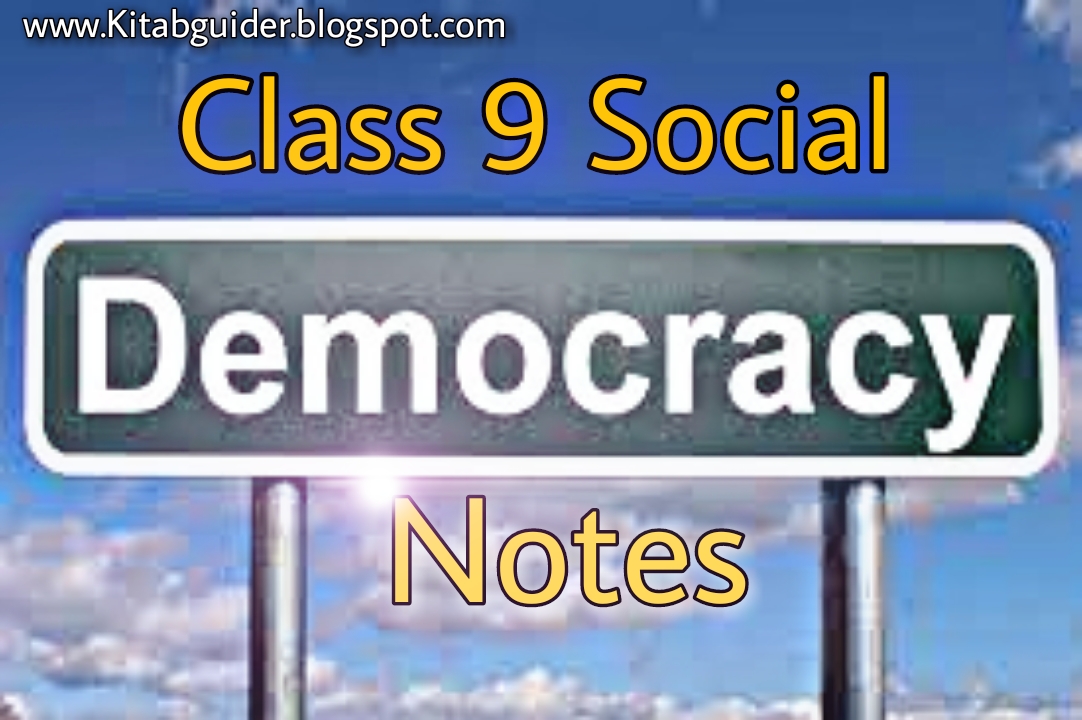 |
DEMOCRACY |
1. What is democratic conduct?
= Various activities that help to institutionalize and strengthen democracy are called democratic conduct.
2. How are public participation and the rule of law important aspects of democratic practice?
→ In a democracy, the participation of the people in every activity of the governance system is mandatory, and to ensure public participation in the governance, there should be clean and fair periodic elections. Government should be formed by elected representatives. In a democratic democracy, the rule of law is a necessary condition, in which the supremacy of the law is accepted. The state is run according to that law. Since there is supremacy of law, everyone should exercise their rights under the law. Thus, public participation and rule of law are important aspects of democratic practice.
3. What is the role of citizens in the development of democratic behavior?
→ The role of citizens is very important in the development of democratic behavior. Citizens should always respect diverse cultures and opinions. By accepting the supremacy of the law, attention should be paid to the observance of the law. In the same way, citizens should participate in periodic elections and choose representatives who are better than us, emphasize themselves in the practice of democratic culture and values, keep their opinions, respect the opinions of others, create an atmosphere of consensus in the discussion, and play a role in the development of democratic conduct.
B. Give a brief answer.
1. Explain in detail the democratic practices:
= The various activities that help to institutionalize and strengthen democracy are called democratic conduct, the basic "principles, characteristics or values that should be in a democratic system, the following aspects are included under the democratic pattern of democratic conduct.
● Rule of law
- In a democracy, the rule of law is a necessary condition, as long as the supremacy of the law is accepted in the state organization, everyone should exercise their rights under the law.
● Public participation
→ To ensure people's participation in governance, there should be clean and fair periodic elections, government should be formed by people's elected representatives.
● Majority rule
- Democracy is the rule of the majority. The party with the majority governs it. Majority is valued when making any decision.
● Respect for dissent
→ Even if the majority is used as the basis for making any decision, everyone's opinion should be respected, everyone should have an environment to express their opinion and give healthy criticism.
● Inclusive governance
→ A governance system in which all castes, languages, religions, cultures, genders, regions etc. are represented is an inclusive governance system.
● Active civil society
→ Every citizen and civil society should have active participation in democracy. Civil society should always be vigilant in every activity of governance and in the proper use of their rights.
● Good governance
→ Good governance is a transparent and accountable governance system, in good governance every citizen gets an opportunity to be informed about the activities of the government.
● Freedom of expression
- Freedom of expression is essential to establish democratic conduct and values. Freedom of expression also helps in building a government that is accountable to the people.




.jpg)
.jpg)

0 Comments